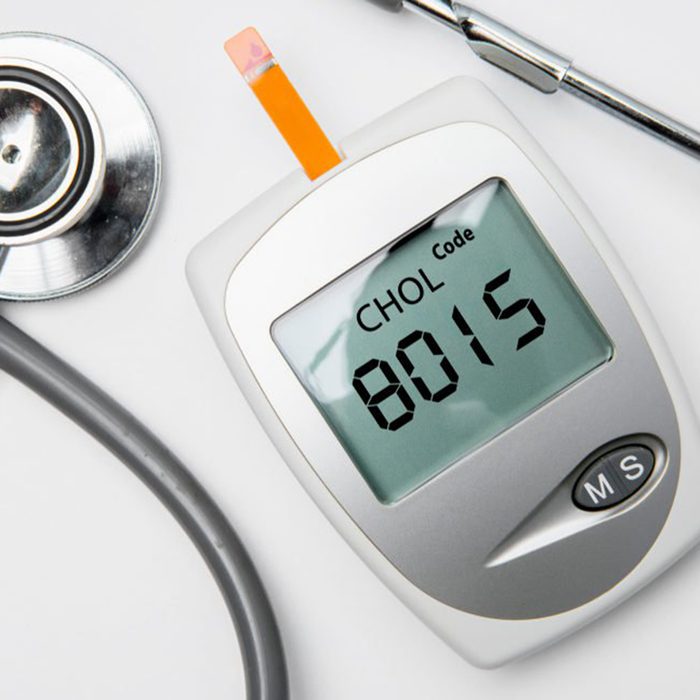
Cholesterol indicators
Researchers have learned a lot about cholesterol since the days when your doctor would warn you off eggs and shellfish. We now know that while those foods contain cholesterol, eating them will not significantly raise cholesterol levels in the blood. Cholesterol comes in different kinds of protein-containing particles, including high-density lipoproteins (HDLs), low-density lipoproteins (LDLs) and very low-density lipoproteins (VLDLs). The cholesterol theory of heart disease is that certain particles, such as LDLs and VLDLs break off and clog arteries, resulting in atherosclerosis.
Most experts backed away from using total cholesterol level as the marker, after researchers discovered that one form, HDL, may actually be protective. At that point, LDL cholesterol became the indicator to watch, though some doctors look at all non-HDL cholesterol, including both LDL and VLDL. More recently, cardiologists like Dr. Allan Sniderman of McGill University in Montreal have been calling for testing what he calls a more accurate marker—a blood protein known as apolipoprotein B (apoB). While previous cholesterol markers just show the amount of lipid in the blood, Dr. Sniderman says, ApoB provides a direct measure of cholesterol-carrying particles.
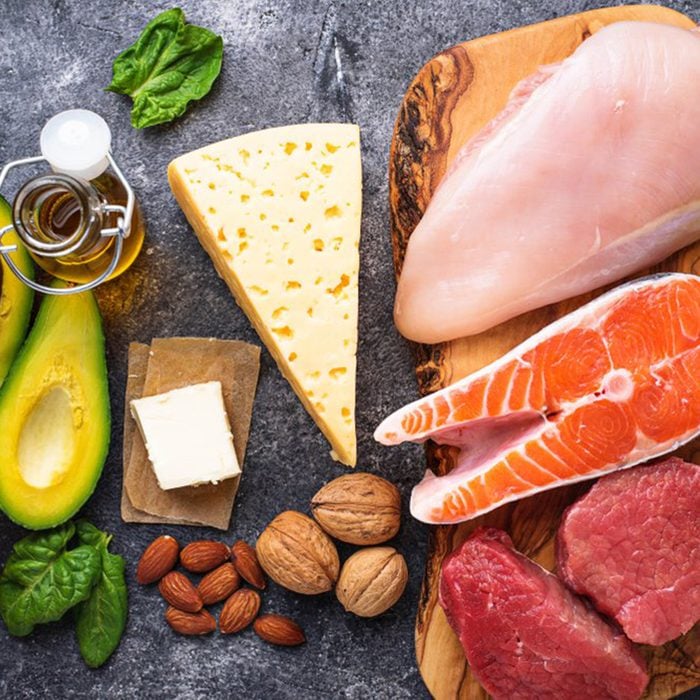
Diet still matters
It may surprise you to learn that half of all heart attacks happen in people with normal cholesterol. A groundbreaking study in the New England Journal of Medicine looked at ten thousand people who had suffered heart attacks and saw elevated blood levels of a protein associated with inflammation—C-reactive protein, or CRP. They administered an anti-inflammatory drug to some and a placebo to others; the anti-inflammatory group saw 37 percent less inflammation and 15 percent fewer cardiovascular events (such as heart attacks) compared with the placebo group. To manage inflammation, take a look at these turmeric recipes that will help reduce inflammation.

Soda
Now that researchers know high-cholesterol foods don’t actually raise cholesterol, says Marie Spano, RD, a sports nutritionist based in Atlanta, they’ve had to look to other culprits. Public enemy number one turns out to be sugar: It’s even worse than saturated fat in raising cholesterol and overall heart disease risk. According to research published in JAMA, a diet high in sugar—and sweetened beverages like soda are a major source—drives up bad LDL cholesterol and triglycerides (another type of blood fat), while depressing levels of good HDL cholesterol. This is what happens to your body when you give up sugar for 30 days.
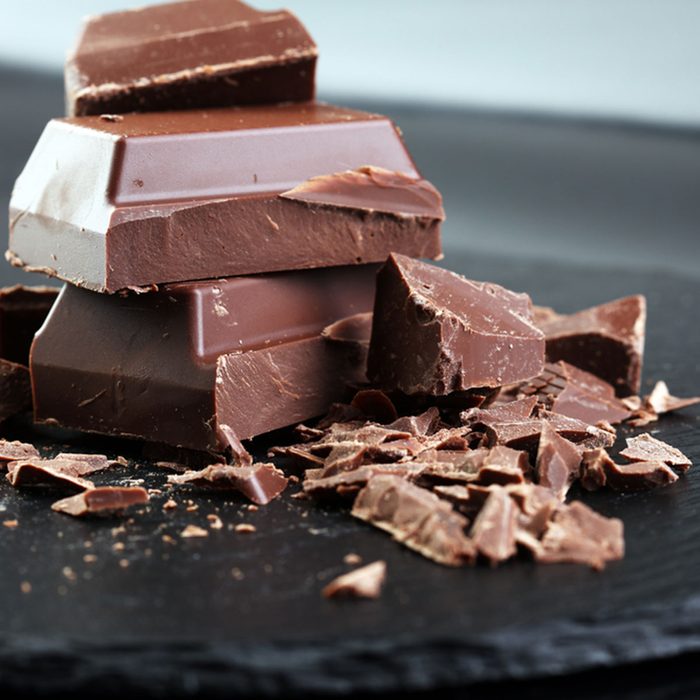
Trans fats
“Manmade trans fatty acids raise cholesterol and independently contribute to heart disease risks,” says nutritionist Spano. And while many manufacturers have removed—or are in the process of removing—trans fats, they still pop up in a surprising number of products: Prepackaged baked goods, desserts, even some types of chocolate. Read labels and avoid anything with partially hydrogenated oils listed among the ingredients, Spano says.
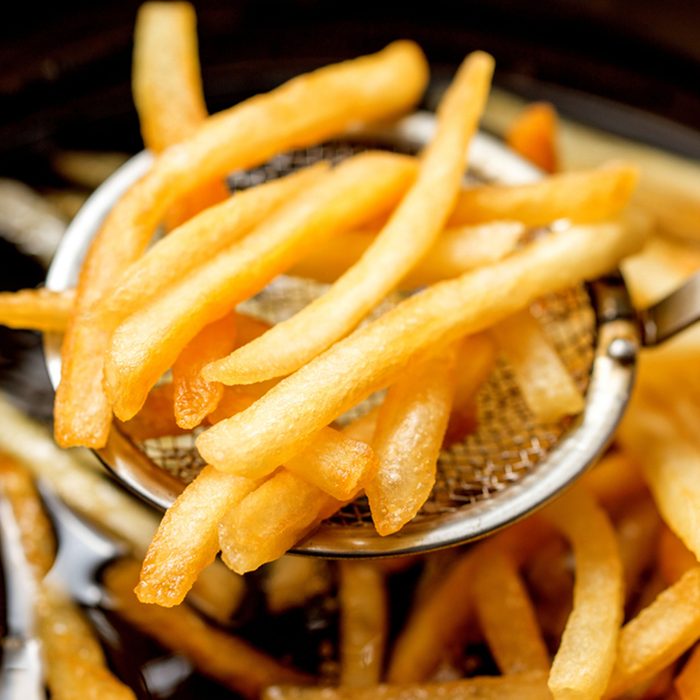
Fried foods
The oils used to fry—or deep-fry—foods are often high in unhealthy fats. Research shows that cooking food in these oils at high temperatures induces chemical reactions that increase the formation of trans fats. Deep-fried foods also tend to be unhealthy or fatty to begin with—think fried mozzarella sticks and donuts, for example—making them a double threat. By the way, this is the difference between air frying and baking.

White bread, rice and pasta
When you eat simple carbohydrates that are stripped of fiber your body breaks them down just like sugar, and both inflammation and LDL cholesterol rise as a result. Overeating refined carbs such as white rice, white-flour pasta and white bread can have the same effect on your body as drinking soda, says Amy Shapiro, RD, a dietician based in New York. Research shows eating foods that contain fiber can actually help lower inflammation in some surprising ways. This is the difference between whole wheat and whole grain bread.
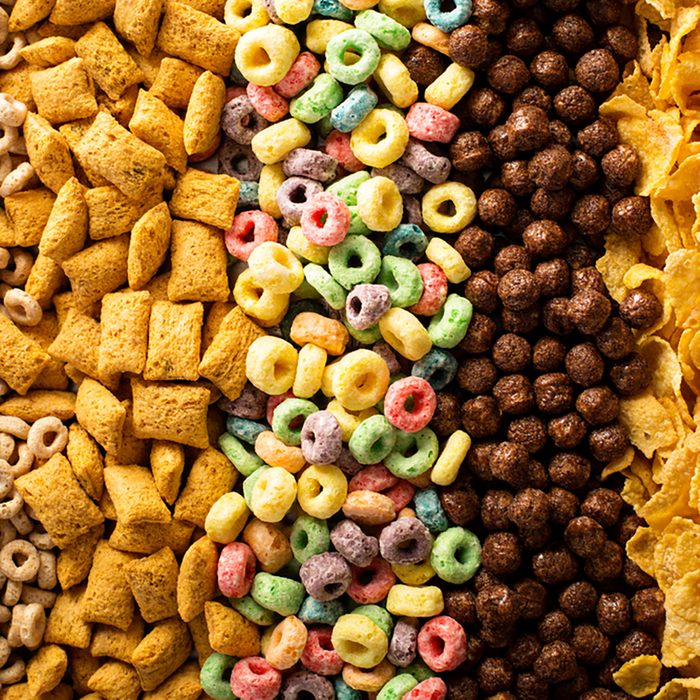
Breakfast cereal
Not only are most cereals made of refined carbohydrates, but cold breakfast cereals also tend to pack in the added sugars, warns Spano. In one recent study, people who had healthy blood sugar levels entered prediabetic and diabetic levels after eating one bowl of cereal with milk. Other research points at sugar as the chief cause of fatty liver disease, which increases heart attack risk. Eating too much added sugar and starch over time can also raise blood pressure, increase chronic inflammation and lead to high triglycerides, low HDL and high amounts of VLDL. Unsweetened oatmeal (look for steel-cut or slow-cooking types that you can sweeten naturally) is a heart-healthier choice, thanks to all the fiber it delivers. And if you’ve been avoiding eggs because you thought they raise cholesterol, check again.
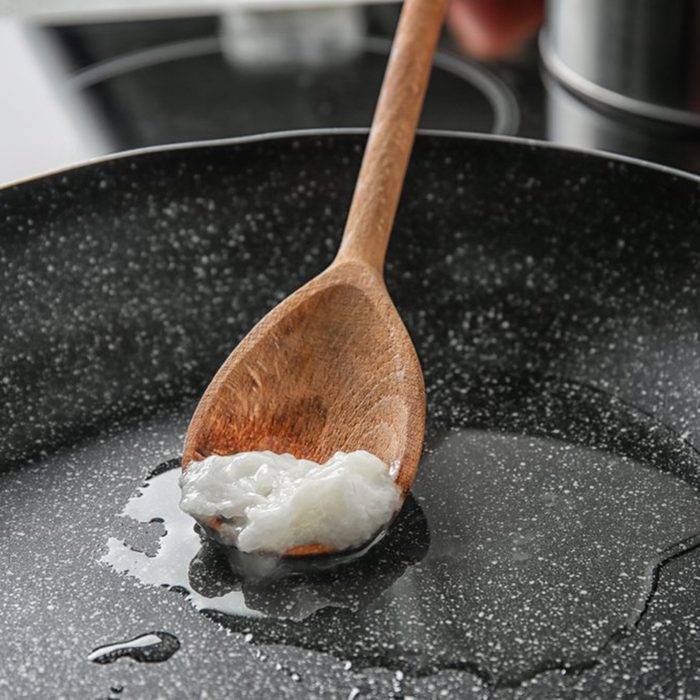
Coconut oil
Coconut products (oil, flour, water) are enjoying popularity among some health gurus, even though their high saturated fat content can raise LDL cholesterol. Researchers have found consumption linked to increases in total cholesterol and LDL—more so than unsaturated oils like olive or safflower. On the other hand, coconut oil consumption has also been found to boost “good” HDL cholesterol. Whether it’s saturated or unsaturated, fat of any kind tends to nudge HDL levels up, though coconut oil seems to be especially effective at it. The jury’s still out, so best to eat it sparingly. The American Heart Association issued an advisory against replacing healthier oils—like vegetable—with coconut oil.
When it comes to cooking, all oils are not created equal. From nutrient status to light exposure during storage to smoke point, here’s a guide to the best oil for cooking any meal.
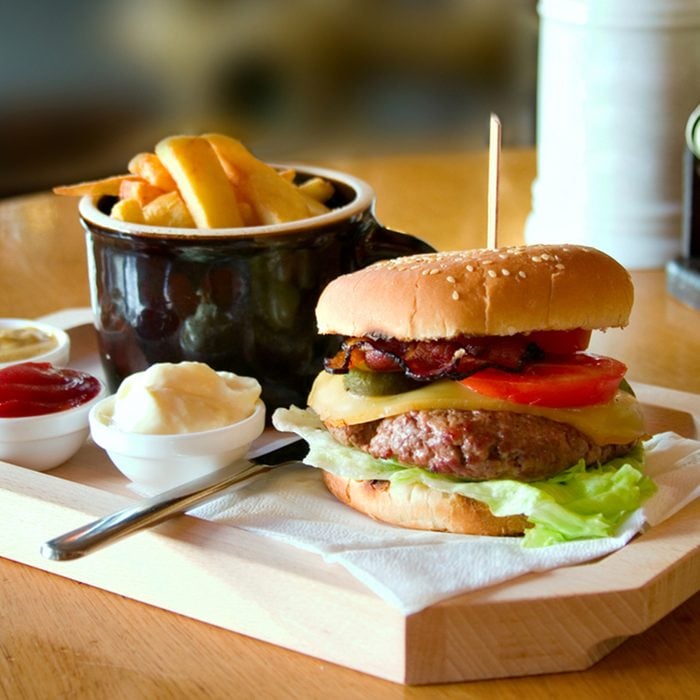
Fast food
While generally lacking in nutrients and not good for you, fast food can have an especially insidious effect on cholesterol. A 2017 study found that people who ate fast food more than once a week suffered a significant increase in LDL and total cholesterol compared to levels in people who rarely ate it. Study authors said that over the long term, the elevated LDL and total cholesterol levels could raise the study subjects’ risk of coronary artery disease by 10 percent. Salt is also abundant in fast food and it raises blood pressure, another risk factor for heart disease. And if the fast food meal includes a soft drink, that’s a triple whammy, as consuming too much sugar can cause obesity and risk of heart disease increases as weight and waist circumference do. If you just can’t resist the lure of your favorite fast-food joints, at least be aware of healthier options.
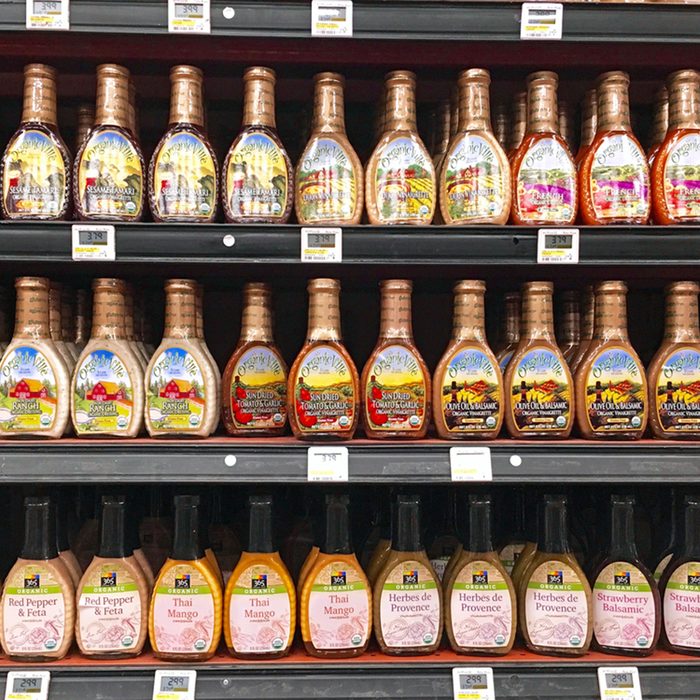
Bottled salad dressings
Salads are supposedly healthy, but not if you drizzle them in a commercial salad dressing, as most contain a surprising amount of added sugar, says Spano. In fact, when the consumer group Label Insight crunched the numbers, they found that 91 percent of the more than 4,200 dressings in their database contained added sugars; worse, a single two-tablespoon serving could exceed daily sugar limits. Stick with oil and vinegar or a DIY dressing. Here are19 more homemade dressings to top your salad with.

Margarine
Once considered totally unhealthy because it contains saturated fat, butter was blacklisted and we were all encouraged to eat margarine instead. Now that the saturated fat myth has been debunked, butter is back—and science has proven margarine to be the unhealthier option, with its trans fats or partially hydrogenated oils. Unlike other cooking fats, butter does contain important nutrients, including fatty acids and fat-soluble vitamins. This doesn’t mean you should go out of your way to eat more of it, but as part of a healthy diet, grass-fed butter can take its place with other healthy fats like olive oil, vegetable oils—or even avocados if you get creative.
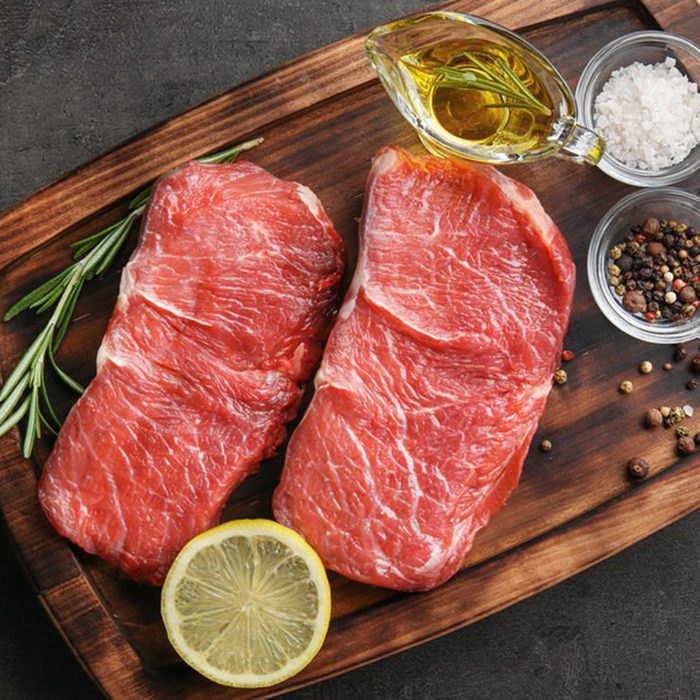
Processed red meat
According to new research, lean and unprocessed red meat may improve heart health. “This study is important because it shows that red meat can be part of a heart-healthy eating pattern, like a Mediterranean-style eating pattern,” says Wayne W. Campbell, professor of nutrition science at Purdue University in West Lafayette, Indiana, in a news release. A meta-analysis published in Circulation concluded that consumption of processed meats is associated with higher incidence of chronic heart disease. The Purdue study showed that adults who are overweight or moderately obese could benefit from a Mediterranean-style diet with or without red meat as long as the red meats were lean and unprocessed. For more heart-healthy tips, check out the 13 foods cardiologists try to never eat themselves.